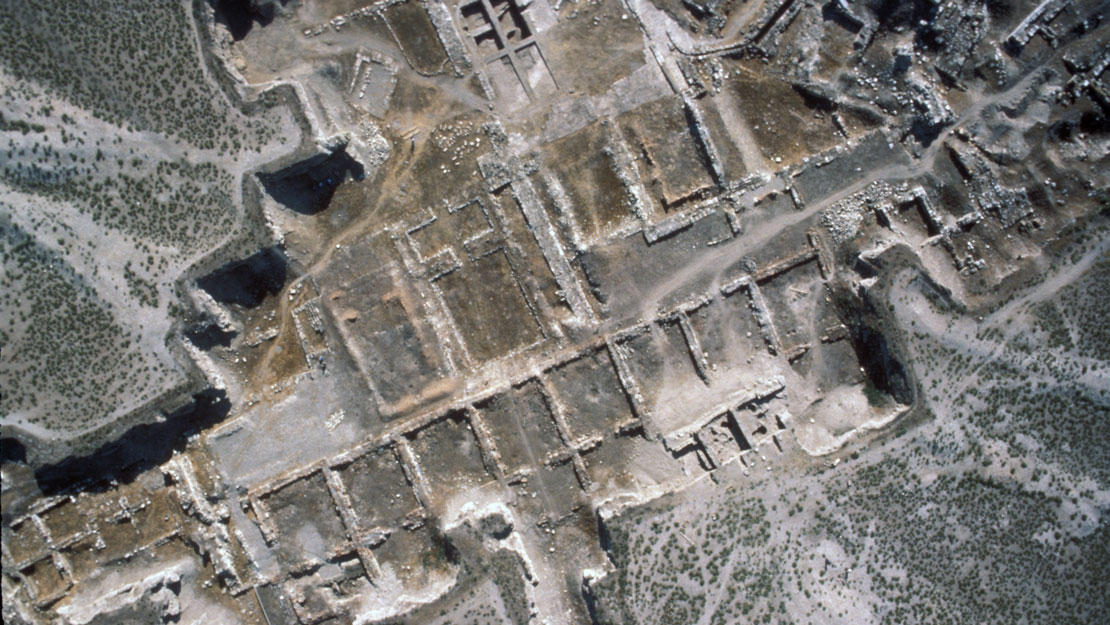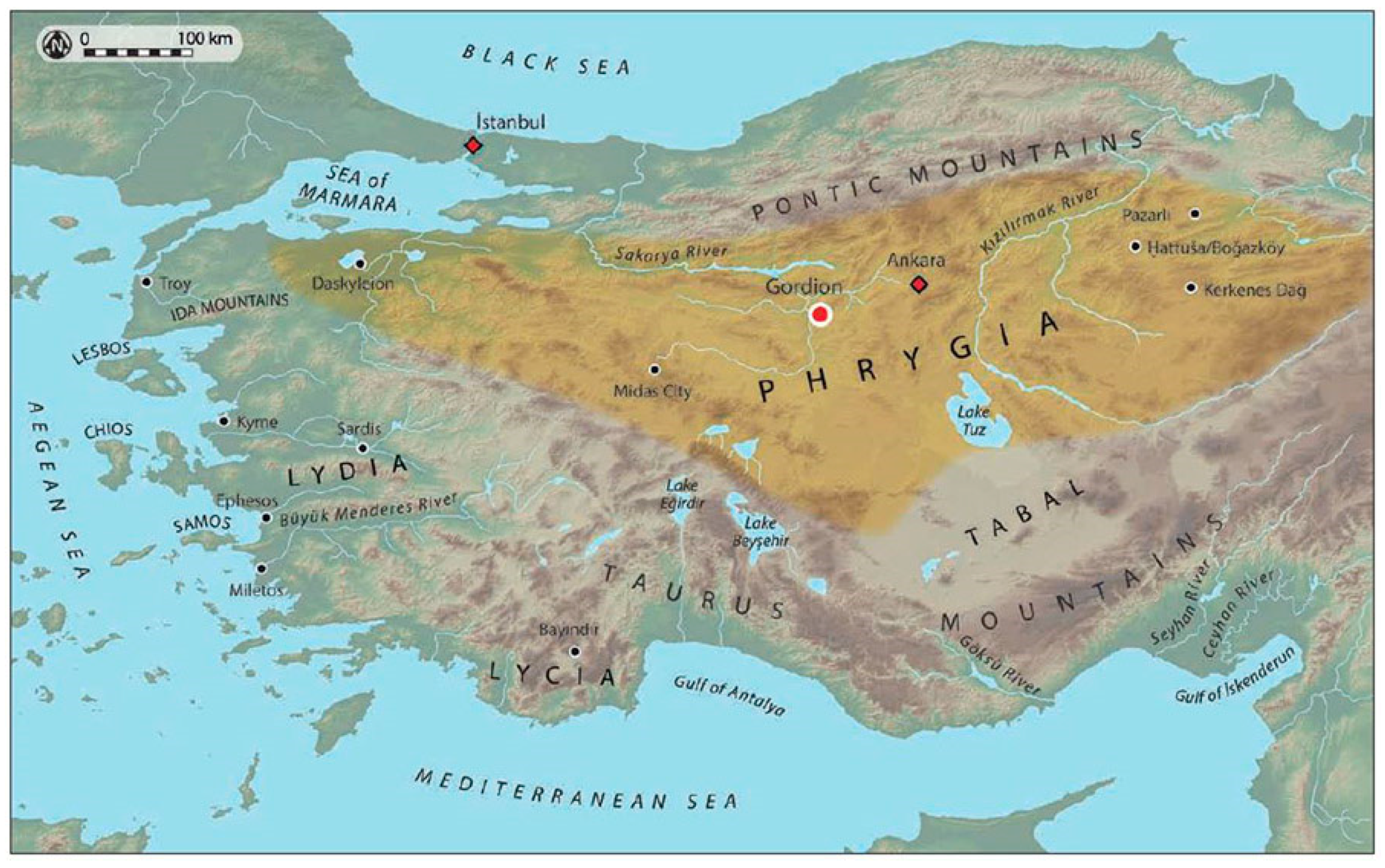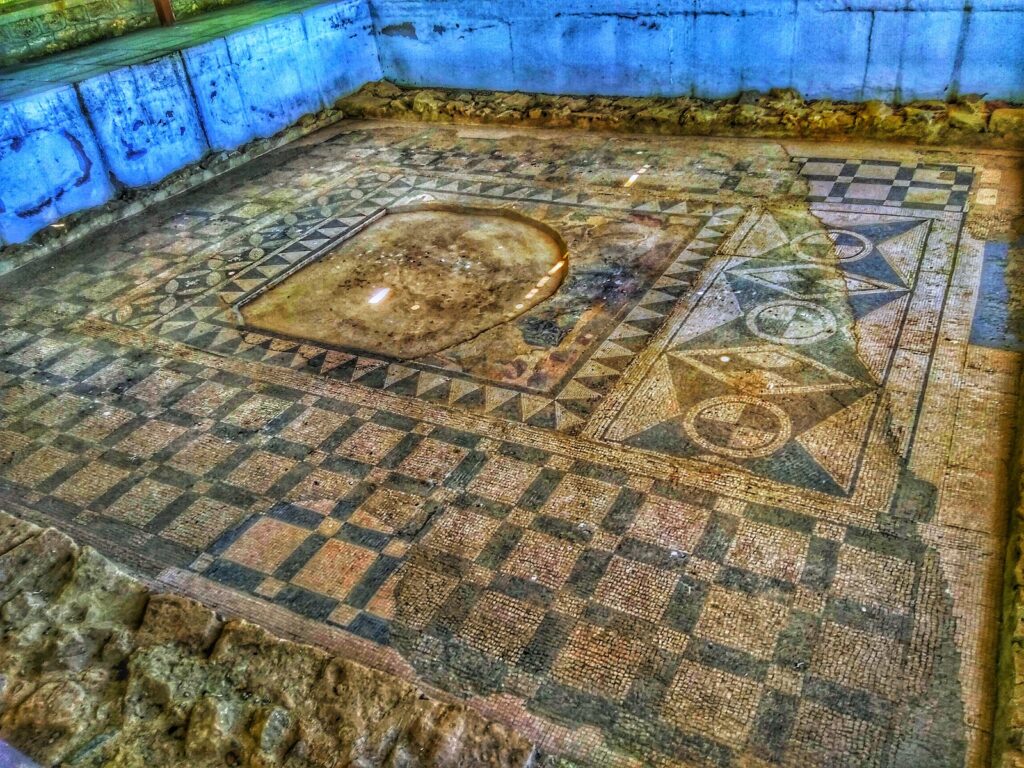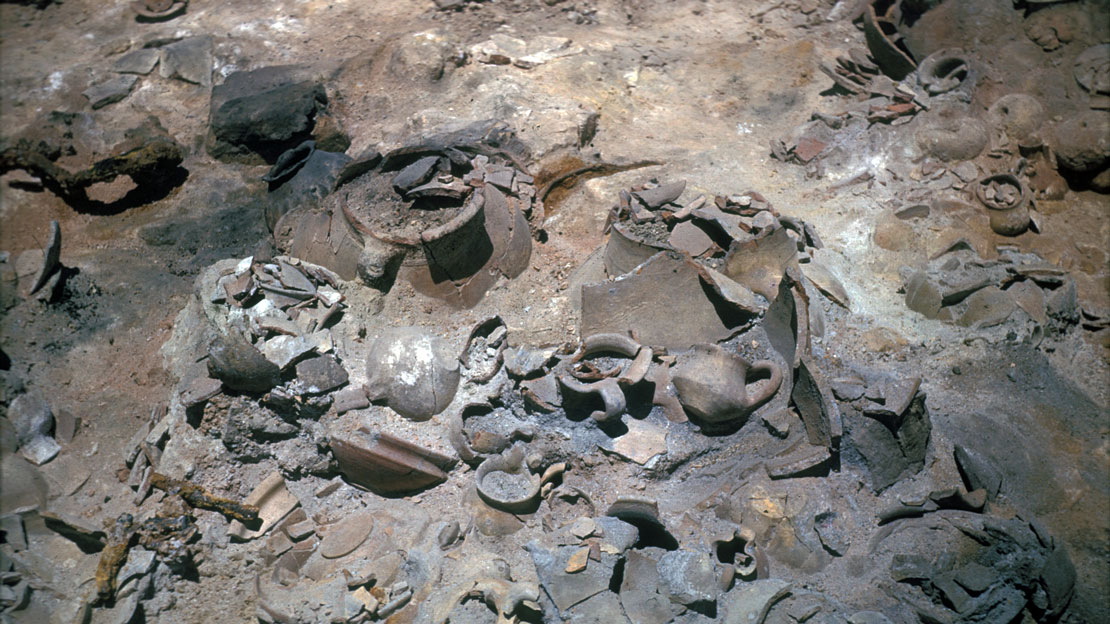Where kings tied impossible knots, where conquerors rewrote destiny, and where archaeologists and storytellers unite—Gordion is not just a ruin, it’s the beating heart of Anatolia’s past.
Table of Contents
Introduction to Gordion
In the heart of central Turkey lies Gordion, once the capital of the Phrygian kingdom and the stage for legends of King Midas and Alexander the Great. But Gordion is more than myths—it is also the story of over a century of archaeology, led most recently by Prof. Dr. Brian Rose and his international team. Thanks to their decades of dedication, the ancient city has been brought back to life, one carefully excavated layer at a time.
15 Days Turkey Trailblazer Tour
This private 15-day journey is designed for travelers who want comfort, flexibility, and authentic discovery. With your own dedicated guide, private vehicle, and carefully selected boutique hotels, you’ll enjoy the highlights of Turkey without the rush of large groups.
The Discovery of Gordion
Gordion first came to modern attention in 1893, when German scholar Alfred Körte, surveying alongside railroad engineers building the Berlin–Baghdad Railway, recognized the site from ancient descriptions. In 1900, Alfred returned with his brother Gustav to lead the first controlled excavations. In just three months, they probed the Citadel Mound and opened five burial mounds. Among these, one mid-8th century BCE tomb yielded stunning grave goods, hinting at the wealth of the Phrygian kings.
Rodney Young and the Mid-20th Century Digs
After decades of silence, Gordion reemerged in 1950, when Rodney S. Young of the University of Pennsylvania launched full-scale excavations. Over 17 seasons until 1973, Young and his team explored the Citadel Mound, the lower town, and more than 30 burial tumuli. His most important discovery was the “destruction level”—an enormous fire around 800 BCE that sealed Phrygian life in time. Burned timbers, charred walls, and intact artifacts preserved an elite quarter of the city like a time capsule.

Young also mapped the tumulus field, including the Midas Mound, which still towers more than 50 meters over the Anatolian plain. These findings firmly established Gordion as one of the most important Iron Age sites in the Near East.
Refinement and New Questions
In the 1970s and 1980s, Keith DeVries continued the project, refining the chronology of Gordion and questioning some of Young’s interpretations.

Later, from 1988 to 2006, directors including Mary Voigt and Kenneth Sams expanded the focus to the lower town, peripheral cemeteries, and settlement patterns, using increasingly sophisticated archaeological methods. Their work broadened the scope from kings and monuments to ordinary life and community.
Brian Rose and the Modern Gordion Project
Since 2007, and officially as director from 2012 onward, Prof. Dr. Brian Rose has guided the Gordion Project into the modern age. With more than four decades of field experience in Turkey—including years excavating at Troy—Rose brought fresh energy and global collaboration to the site.

Under his leadership, archaeologists uncovered the East Citadel Gate, still preserved at 10 meters high, and traced monumental approach roads that framed the city’s ceremonial heart. Conservation has been a major priority: stabilizing fragile burned stones, preserving architectural terracottas, and protecting organic finds such as wood and textiles.
Rose’s vision has also been outward-facing. He emphasizes public education, rapid publication of results, and conservation for the future. Today, more than half the excavation team is Turkish, joined by American, European, and international specialists, making Gordion feel like a “miniature United Nations” of archaeology.
In 2023, after decades of excavation and conservation, Gordion was inscribed as a UNESCO World Heritage Site—a milestone achievement that crowns the long journey from forgotten mound to recognized treasure.
The Physical Layout of Gordion
Gordion, the legendary capital of the Phrygians, is a site of immense historical and archaeological significance, lying about 90 kilometers southwest of Ankara along the Sakarya River.

Physically, the city is defined by its imposing citadel mound, once fortified with massive stone-and-mudbrick walls nearly nine meters thick, and home to palaces, megarons, storerooms, and administrative halls.

Surrounding the citadel stretched the lower town, with workshops, houses, and traces of daily life, all protected by additional outer fortifications. Scattered across the landscape are more than a hundred burial mounds (tumuli), the most famous being Tumulus MM, a colossal 53-meter-high mound believed to hold the burial of King Midas or his father, containing a wooden chamber and lavish grave goods. Together with its fertile plains, river access, and location at a major crossroads of Anatolia, Gordion stood as both a powerful Phrygian capital and a lasting symbol of Anatolian civilization.

At Gordion, archaeologists also excavated thousands of terracotta roof tiles (“architectural terracottas”), many from the mid-6th century BCE. They’re decorated (geometric and figural) and have even allowed scholars to reconstruct whole roof systems; finds are studied on site and in Ankara’s Museum of Anatolian Civilizations.

Gordion’s Timeless Legacy
Gordion’s significance lies not only in its myths but in its lived history. The Phrygians stood at the crossroads of East and West, shaping a culture influenced by Greece, Urartu, Assyria, and beyond. Their city walls, monumental gates, and towering burial mounds still dominate the Sakarya plain.
Gordion was a fortified citadel city with elite palaces on the mound, an extensive lower town for ordinary life and production, monumental burial mounds for royalty, and strategic positioning along Anatolia’s trade and military routes.
The Gordian Knot, famously cut by Alexander in 333 BCE, remains a metaphor for bold solutions. The Midas Mound reminds us of royal ambition and human mortality. And the charred remains of the destruction level give us an intimate view of daily life, frozen in time.

The Significance of Gordion and Phrygians
Gordion’s significance lies not only in its monuments and myths but also in its role as the capital of the Phrygians, a people who rose in the aftermath of the Late Bronze Age Collapse. As the mighty Hittite Empire and Luwian city-states crumbled around 1200 BCE, the Phrygians — possibly migrants from the Balkans — established themselves in central Anatolia, filling the vacuum with a new and dynamic culture.

At Gordion, they built massive fortifications, royal palaces, and tumuli that still dominate the landscape, while their language, intriguingly closer to Greek than to Anatolian tongues like Luwian, set them apart as cultural outsiders who blended seamlessly into local traditions.

Legends of King Midas and the Gordian Knot ensured their place in mythology, but archaeology reveals a deeper truth: Gordion was both a crossroads of civilizations and a testament to resilience after collapse, where a new people transformed Anatolia’s shattered world into something enduring.
Iron Age in Gordion

Gordion was the capital of the Phrygian kingdom and one of the best archaeological windows onto the Iron Age in the Near East.
Today it is recognized by UNESCO for its Early Phrygian citadel and great burial mounds, which stand as exceptional examples of monumental Iron Age architecture, with massive fortification walls and a grand city gate from the 10th–8th centuries BCE.

Excavations have revealed a burned destruction level in the citadel that froze a royal district in time: storerooms packed with jars, grinding and cooking installations, and traces of weaving and craft production.
Nearby, elite buildings preserve some of the earliest known colored floor mosaics. Gordion’s royal tumuli, especially Tumulus MM – often linked to the legendary King Midas – offer a close look at Phrygian power and ceremony.

Inside this 8th-century BCE tomb, archaeologists found the best-preserved set of ancient wooden furniture from the Near East, over 170 bronze vessels, belts, hundreds of fibulae, fine textiles, and the remains of a huge funerary feast.
Recent work has uncovered more Iron Age tombs with wooden burial chambers, iron tools, bronze cauldrons and cremated remains, confirming Gordion’s role as the enduring heart of the Phrygian kingdom. Together, its citadel, burned levels and royal cemeteries make Gordion one of the clearest places to experience the world of the Iron Age Phrygians.

Touring Gordion with The Other Tour
At The Other Tour, we believe archaeology is not just about stones and ruins—it’s about people and their stories. Our hand-picked professional guides, many with backgrounds in archaeology and history, make sites like Gordion come alive.
A visit begins in Yassıhöyük village at the Gordion Museum, where artifacts unearthed by generations of archaeologists—including Brian Rose’s team—are on display. From there, we guide you up the Citadel Mound, through the monumental East Gate, and onto the burial mounds that watch over the plain. Along the way, you’ll hear not just of Midas and Alexander, but also of the archaeologists who gave their lives’ work to bring this ancient city back into the world’s memory.
We often pair Gordion with Ankara’s Museum of Anatolian Civilizations or even journeys to Hattusa, Cappadocia, or Konya, giving you a broader view of Anatolia’s archaeological wonders.







